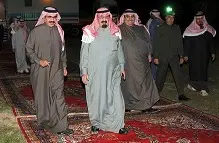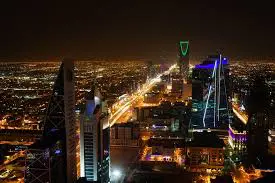Dit wil niet zeggen dat het op korte termijn gedaan is met de verkoop van olie. De komende decennia blijven olie en gas een essentieel onderdeel uitmaken van de energiemix. De energietransitie gaat hard, maar zo hard gaat het nu ook weer niet. Dit inzicht leidde vorige maand overigens tot realiteitszin in de Tweede Kamer. Het oorspronkelijke idee van de PvdA om tot een verbod te komen op de verkoop van auto’s met verbrandingsmotoren in 2025 ging van tafel en werd vervangen door een oproep aan het Kabinet om te streven naar het “louter verkopen van emissieloze nieuwe auto’s in 2025”.
Toch toont het plan aan dat het nu menens wordt met de energietransitie en onderschrijft de stelling dat Saoedi Arabië inderdaad minder afhankelijk van de verkoop van olie moet worden. Om de economie om te schakelen wordt een investeringsfonds van $2.000.000.000.000 gesticht. Veel geld dus. Dat geld moet onder meer bij elkaar worden gebracht door de verkoop van aandelen van het staatbedrijf Saudi Aramco dat tussen de 1 en 10 triljoen dollar waard is.
Toch toont het plan aan dat het nu menens wordt met de energietransitie en onderschrijft de stelling dat Saoedi Arabië inderdaad minder afhankelijk van de verkoop van olie moet worden. Om de economie om te schakelen wordt een investeringsfonds van $2.000.000.000.000 gesticht. Veel geld dus. Dat geld moet onder meer bij elkaar worden gebracht door de verkoop van aandelen van het staatbedrijf Saudi Aramco dat tussen de 1 en 10 triljoen dollar waard is.
Saoedi-Arabië is niet het eerste olieland dat de economie op de schop neemt. Dubai ging groeien nadat in 1966 olie werd gevonden. Wie nu in dat land komt ziet, behalve een overgerestaureerd stukje, niets meer van het oude Dubai terug. Daar staat tegenover dat de architectuur soms adembenemend is. Zo adembenemend dat toen het in 2009 economisch slechter ging de bouwsector in de problemen kwam. Toch heeft het land zich ontwikkeld tot een toeristisch trekpleister en een centrum voor financiële dienstverlening. Dubai heeft een florerende ICT sector en is natuurlijk een belangrijke hub voor het vliegverkeer. Inmiddels is het land voor slechts 5 procent afhankelijk van de verkoop van olie.
Het hele interview in energiepodium is hier te lezen.
Photo credit: Bahrain Ministry of Foreign Affairs via Foter.com / CC BY-ND




